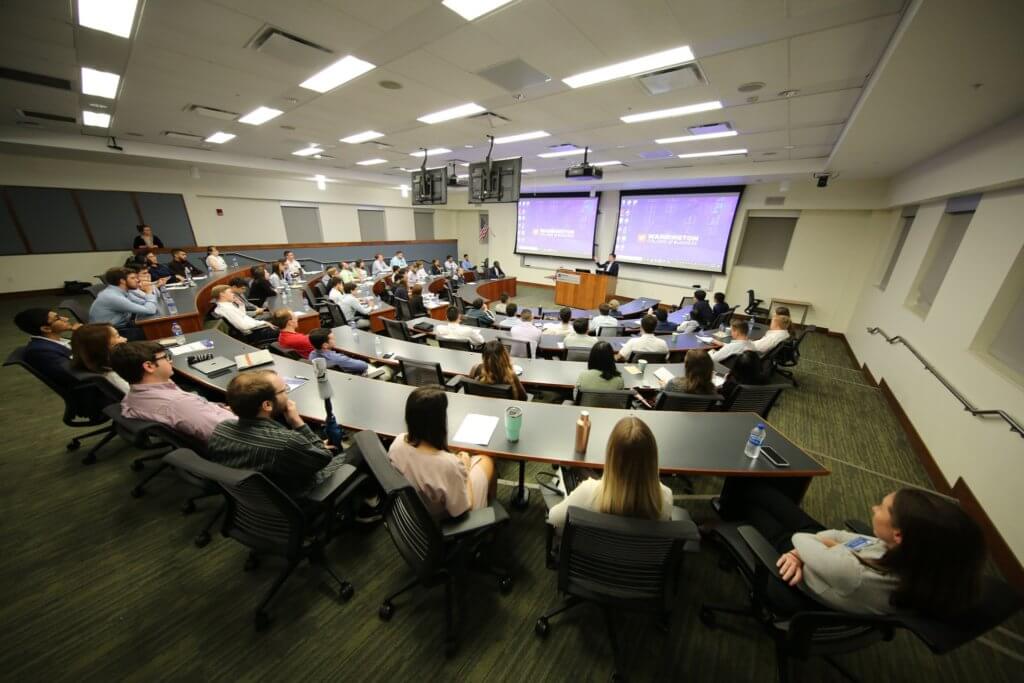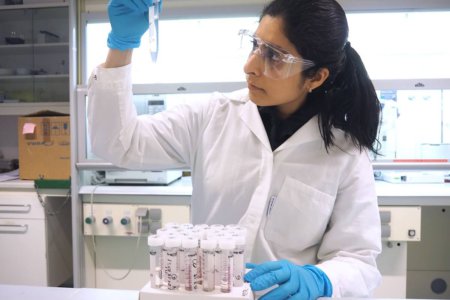
Employers are racing to snap Data Science talents. By 2022, business leaders are predicting human workers and automated processes are expected to perform current tasks equally, according to the 2018 Future of Jobs Survey and Report. A new range of roles is set to emerge too, as industries go digital.
Data has the power to show us how specific skills, tasks and occupations are changing across industries and geographies. As businesses and organisations head into the Fourth Industrial Revolution, they will depend on emerging data sources — coupled with traditional and qualitative sources of data — to strategise and make policies about the present and future of work.
Data Science graduates can expect to capitalise on the “intense competition” between industry, academia and the public sector for people of their calibre and niche. If you want to be part of this “high premium” talent pool, consider these US universities:
Texas Tech University: Rawls College of Business
Degree completion in as little as one year. Affordable . A pathway to Optional Practical Training. One of the first and most well-established Data Science programmes in the US . Faculty members active in research and with diverse areas of expertise.

Learn how to manage, analyse and understand complex data to make strategic decisions with Texas Tech University’s Master of Science in Data Science. Source: Texas Tech University, Rawls College of Business
These features describe Texas Tech University’s Master of Science in Data Science. Offered by the Rawls College of Business, the programme provides students with the skills, knowledge and expertise to lead in the digital frontier.
The TTU Rawls MS in Data Science is ranked the no. 17 best online, non-MBA programme in the nation in 2021. In this 36-hour, STEM-designated programme, students will learn how to use advanced technologies and statistical methods to manipulate and interpret data into actionable organisational strategies. The goal is to nurture the next generation of agile data scientists capable of making impactful decisions across a variety of business settings and industries.
What sets this programme apart is its flexibility and faculty members. Students can complete coursework on campus or online. They can complete their degree in as little as a year, or take fewer classes per semester by selecting the online, two-year option. International students attending on campus may qualify to work in the US for up to three years after receiving their degrees.
Students learn from faculty members, who double as engaged technology practitioners who utilise real-world experience to inspire their instruction.
Their areas of expertise include Machine Learning, Business Intelligence, Big Data Security, Operations Research, Computer Programming, Econometrics, Information Economics, IT strategy, and more.
University of Southern California: Marshall School of Business
Research is big at the University of Southern California. At the Marshall School of Business, faculty members are known for being the best at taking a problem and inspecting it from various angles to find a solution. It has a long history of innovative thinking, entrepreneurial action, and global impact.

At the Department of Data Sciences and Operations, teaching and research cover three disciplines: information systems, operations management, and statistics. Source: University of Southern California
Dean Geoffrey Garret said it best: “At Marshall, our focus is on producing leaders with the skills to turn ideas into outcomes for the real world, right now. Our award-winning faculty thought leadership and experiential learning environment create leaders who are visionary and adaptable; prepared not only for the jobs of today but also for future careers not yet imagined that the Marshall community will help shape.”
Its Department of Data Sciences and Operations is no exception. Here, teaching and research span three disciplines: information systems, operations management, and statistics. A total of 40 faculty members have received awards and honours, served on editorial boards of major journals, and received recognition for educating.
Some of these experts deliver the Master of Science in Business Analytics (MSBA), a data science STEM programme with a strong business lens. While emphasising project-based learning in classrooms, it also encourages students to acquire more profound business analytics knowledge through real-world business challenges. These projects –– offered in collaboration with industry –– cover a range of business areas such as finance, operations, marketing, management, supply chain, and HR.
Purdue University: Krannert School of Management
If you’re keen on conducting research that advances STEM, Purdue University is the place for you. Located in West Lafayette, Indiana, the Krannert School of Management is especially ideal for those interested in gaining the technical and analytical expertise needed in the business world. In the process, they learn to use data to make better-informed decisions.

The Krenicki Centre for Business Analytics & Machine Learning hosts multiple student-led consulting projects, conferences, and competitions. Source: Purdue University
These topics are covered in the Master of Science in Business Analytics and Information Management (MSBAIM) classroom. The programme was designed to develop experts familiar with state-of-the-art information technologies and analytical techniques that are needed at various organisations.
It also helps students hone proficiencies in the use of Python, Rstudio, Excel, SQL, Minitab, Gurobi, and other big data technologies. It also offers a unique treatment of data analytics, gamification, optimisation modelling, and significant depth in SAS modelling and usage. Collectively, the programme’s premise is to ensure graduates are prepared for the current and future landscape of business data.
Students will also access the Krenicki Centre for Business Analytics and Machine Learning, a hub for businesses looking to connect with researchers to solve data-driven business challenges. It hosts multiple student-led consulting projects, conferences, and competitions.
University of Florida: Warrington College of Business
The University of Florida’s Warrington College of Business is one of the most respected business schools in the US for various reasons. Start with the fact that it is referred to as the birthplace of forward-thinking business leaders, or that it keeps an eye on innovation and results across each of its offerings.

The Master of Science in Information Systems and Operations Management was designed in line with industry needs to prepare students to thrive in the age of analytics, artificial intelligence, and machine learning. Source: University of Florida
Its STEM-accredited Master of Science in Information Systems and Operations Management is a good example. The programme was built in line with industry needs to prepare students to thrive in the age of analytics, artificial intelligence, and machine learning. To eventually help push companies forward, they will be given access to cutting edge methods in analytics.
Data is a massive focus of the course. Faculty members teach students to collect it, analyse it and leverage their findings to help companies make critical decisions. Of course, students will be able to specialise in the areas best for their goals.
The programme offers four concentrations. The business analytics option combines business functional knowledge and released data with analytics skills to support businesses. The data science track combines programming, information systems, business intelligence, and more to provide a technical foundation.
The information technology concentration is ideal for designing, implementing, and managing systems that support a comprehensive IT strategy. Finally, the supply chain management option teaches students to manage creating, transporting, and delivering goods and services to consumers.
*Some of the institutions featured on this article are commercial partners of Study International










